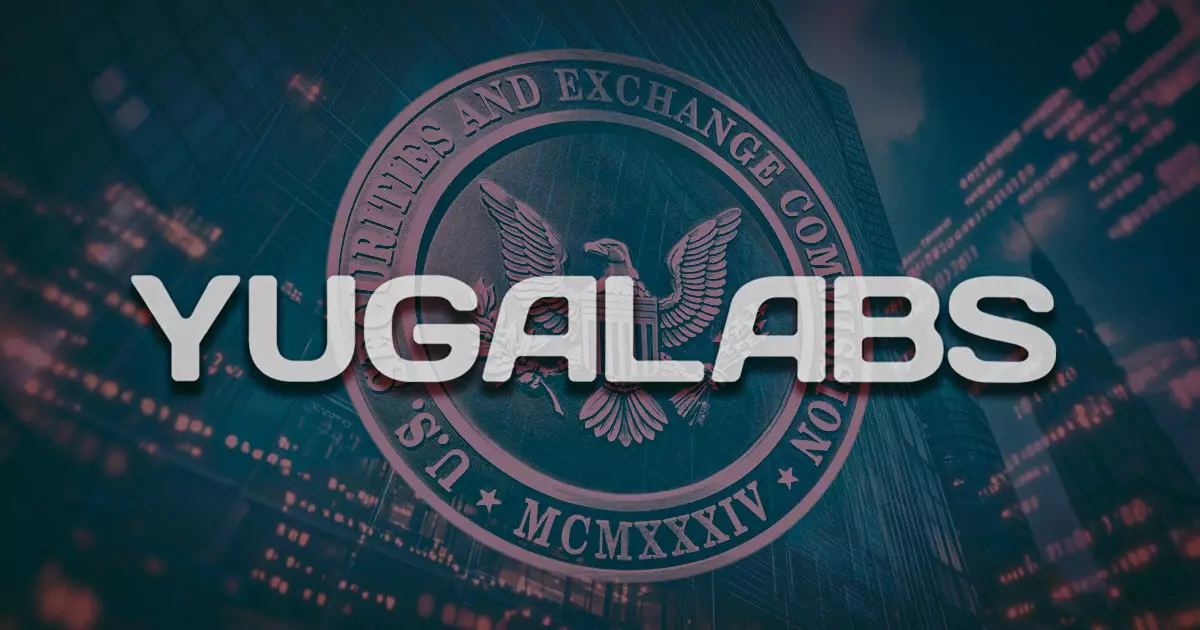The conclusion of the SEC’s investigation into Yuga Labs marks a significant turning point not just for the company but also for the entire NFT ecosystem. After more than three years of scrutiny, this announcement represents a hard-fought win for creators who have long awaited clarity amid an environment rife with regulatory uncertainty. The SEC’s decision to forego any enforcement action solidifies a crucial precedent: NFTs, as creative works, should not necessarily be classified as securities. This represents a triumph for innovation and artistic expression in the digital age.
At a time when digital currencies and assets seem to be like a roller coaster of volatility, the SEC’s recent findings are a breath of fresh air. For far too long, the industry has faced the grim specter of regulatory crackdowns that stifle creative potential. Yuga Labs’ win could be considered an inflection point that inspires both established and emerging creators to push boundaries without fear of sweeping legal repercussions. Creating art is supposed to be liberating, not enmeshed in legalese; this outcome encourages artists and entrepreneurs to exploit the NFT transformation.
The backdrop of the SEC’s decision is a complicated relationship with the crypto industry, particularly during the tenure of Chair Gary Gensler. Historically, the SEC has regarded many digital assets through a conservative lens, often classifying them as securities under the Howey Test—a legal test known for its rigid requirements. However, Yuga Labs’ exoneration challenges this norm, subtly undermining the SEC’s authoritative stance on NFTs. It raises a pressing question: How does one delineate between a cultural artifact and an investment contract?
Yuga Labs isn’t an isolated case. The SEC’s similar closures of investigations into platforms like Robinhood, Gemini, and Uniswap indicate a broader shift in the regulatory landscape. It raises hopes that the current SEC, under new leadership, may adopt a more balanced approach to digital assets. Crafting fair regulations that honor innovation without impeding it should be the goal. Industry leaders are now finding themselves at a critical juncture where they can assert their positions more confidently against what has historically felt like a barrage of adversarial compliance hurdles.
Despite lingering fears of legal repercussions, this resolution for Yuga Labs may embolden NFT creators to continue their fight for artistic legitimacy in the marketplace. Many in the sector argue that NFTs should be viewed as unique and tradable digital assets, akin to collectibles, rather than investment vehicles. Following this line of thought is essential; after all, what is the role of an artist but to challenge conventions? The very essence of NFTs embodies that rebellious spirit, and Yuga Labs’ success can be viewed as a banner under which other creators march forward.
This intersection of governance and creativity presents us with a stimulating challenge: how do we nurture innovation while respecting legal frameworks? As the future unfolds, it will be fascinating to watch how creators, collectors, and regulators come together to define what NFTs can ultimately become in a world that sometimes seems more interested in rules than art.

